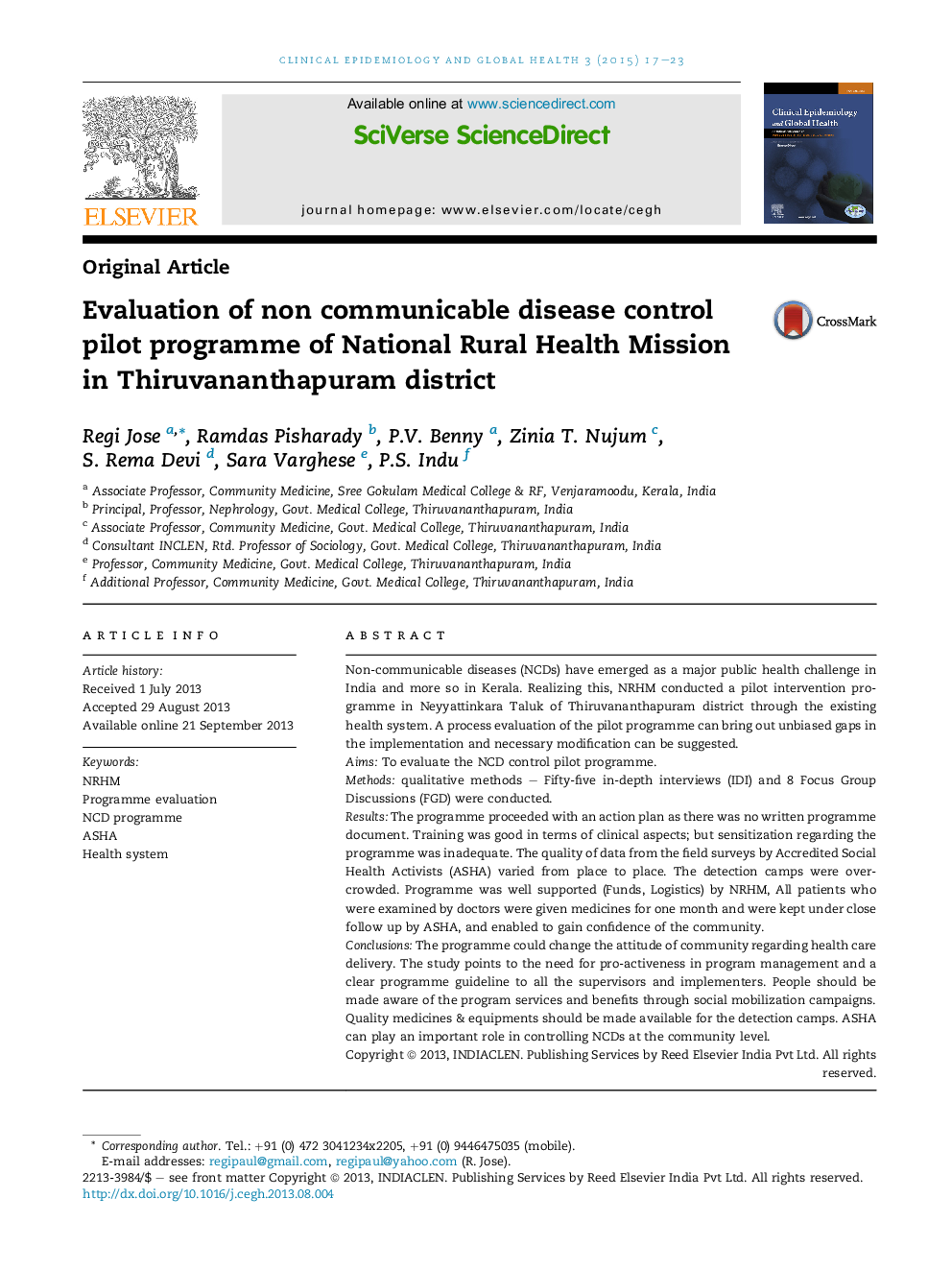| Article ID | Journal | Published Year | Pages | File Type |
|---|---|---|---|---|
| 3396268 | Clinical Epidemiology and Global Health | 2015 | 7 Pages |
Non-communicable diseases (NCDs) have emerged as a major public health challenge in India and more so in Kerala. Realizing this, NRHM conducted a pilot intervention programme in Neyyattinkara Taluk of Thiruvananthapuram district through the existing health system. A process evaluation of the pilot programme can bring out unbiased gaps in the implementation and necessary modification can be suggested.AimsTo evaluate the NCD control pilot programme.Methodsqualitative methods – Fifty-five in-depth interviews (IDI) and 8 Focus Group Discussions (FGD) were conducted.ResultsThe programme proceeded with an action plan as there was no written programme document. Training was good in terms of clinical aspects; but sensitization regarding the programme was inadequate. The quality of data from the field surveys by Accredited Social Health Activists (ASHA) varied from place to place. The detection camps were overcrowded. Programme was well supported (Funds, Logistics) by NRHM, All patients who were examined by doctors were given medicines for one month and were kept under close follow up by ASHA, and enabled to gain confidence of the community.ConclusionsThe programme could change the attitude of community regarding health care delivery. The study points to the need for pro-activeness in program management and a clear programme guideline to all the supervisors and implementers. People should be made aware of the program services and benefits through social mobilization campaigns. Quality medicines & equipments should be made available for the detection camps. ASHA can play an important role in controlling NCDs at the community level.
